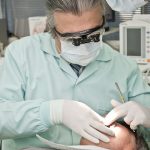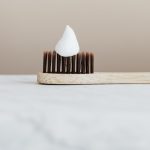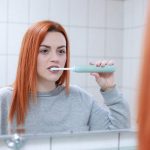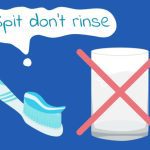18 – 64
Years
Please click here to be taken to the updated list of practices currently registering NHS patients.
Discover the 7 steps to a great smile
1. Cut Out Fizzy Drinks and Eat Healthier Snacks
 The average person eats 40kg (88lbs) of sugar a year – that’s 40 bags worth! Remember that constant snacking on sugary foods can seriously damage your teeth. Limit sugary foods to mealtimes only. If you need a snack between meals choose a tooth-friendly one: fruit, veggie sticks, oatcakes or toast are some suggestions.
The average person eats 40kg (88lbs) of sugar a year – that’s 40 bags worth! Remember that constant snacking on sugary foods can seriously damage your teeth. Limit sugary foods to mealtimes only. If you need a snack between meals choose a tooth-friendly one: fruit, veggie sticks, oatcakes or toast are some suggestions.
Also, remember to keep an eye on what you’re drinking. Milk and water are the only tooth-friendly drinks. Fizzy drinks (including diet/sugar free varieties) can strip the surface of your teeth, leading to dental erosion, sensitive teeth – and a less attractive smile.
Smoothies, diluting and fresh fruit juices can also be sugary and acidic which can be harmful to teeth. Check the label for sugar content and be sure to dilute juices well. If you can’t stop drinking sugary or fizzy drinks, limit to mealtimes only and use a straw. Find out more here
2. Brush Twice a Day and Replace Your Toothbrush Regularly
![]() Brush in the morning and before going to bed. When choosing your toothbrush it’s not how fancy or expensive it is, it’s what you do with it that counts. Choose a brush with a head small enough to reach all areas of your mouth easily. Ensure the bristles are soft to medium to prevent damaging your gums, and change your toothbrush at least every 3 months or when the bristles show signs of wear.
Brush in the morning and before going to bed. When choosing your toothbrush it’s not how fancy or expensive it is, it’s what you do with it that counts. Choose a brush with a head small enough to reach all areas of your mouth easily. Ensure the bristles are soft to medium to prevent damaging your gums, and change your toothbrush at least every 3 months or when the bristles show signs of wear.
3. Use a Pea Sized Amount of Fluoride Toothpaste
4. Use a Circular Brushing Motion
5. Brush for 2 Minutes
6. Spit Don’t Rinse
7. Visit Your Dentist Regularly

Unfortunately not all dentists are accepting new NHS patients. You can get information on how to find a dentist by clicking here. Once registered, have regular check-ups. Don’t forget – regular visits can mean fewer or no treatments.
If you’re a smoker, another key thing you can do to look after both your oral and general health is to give up. The NHS Grampian Smoking Advice Service provides friendly and practical advice to help you do this. All help is free of charge and can be offered on a one-to-one or group basis depending on your needs.
Aged 65 or over? Click here for more information about looking after your mouth.








